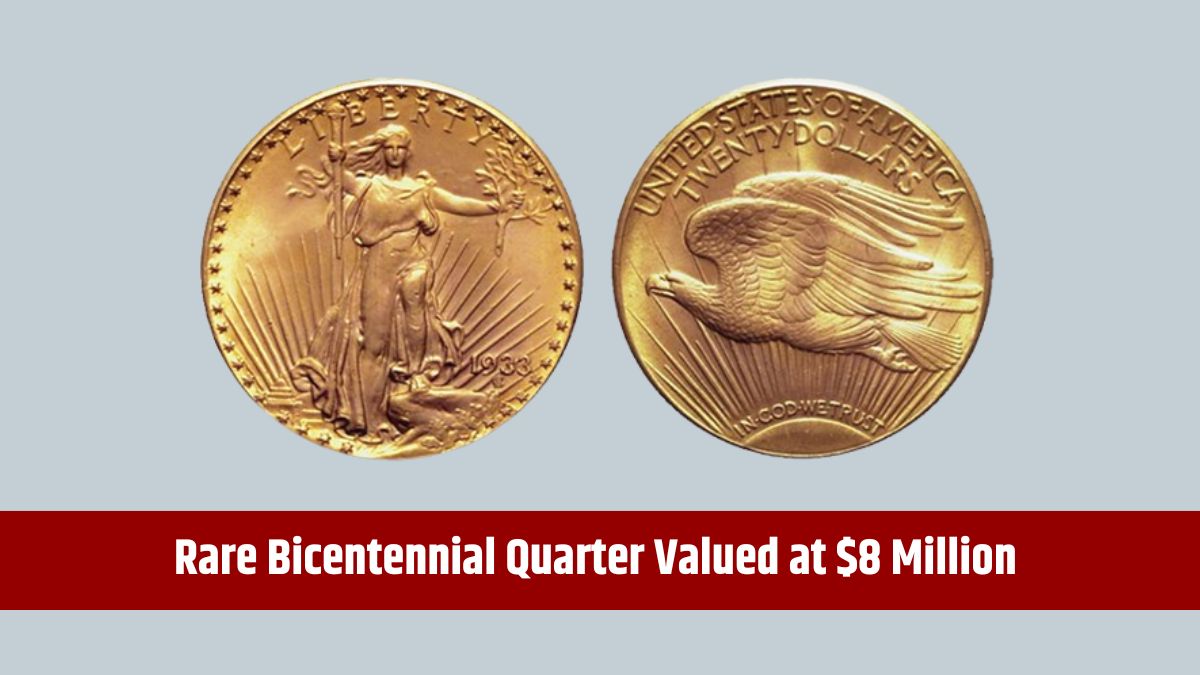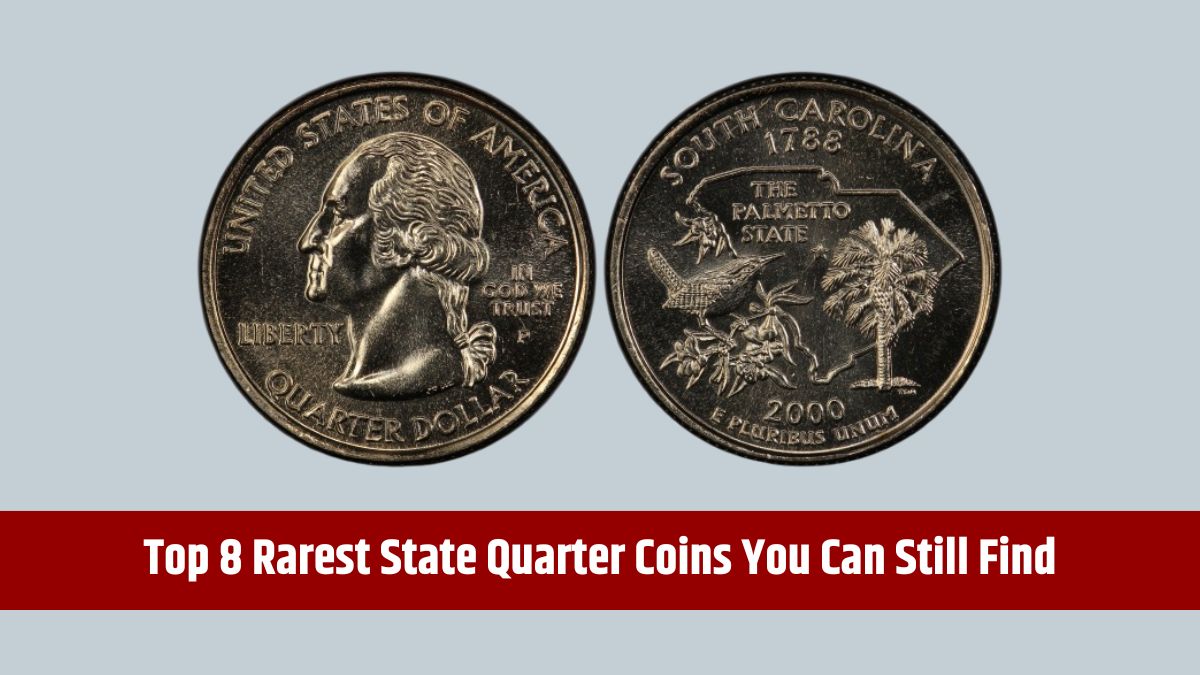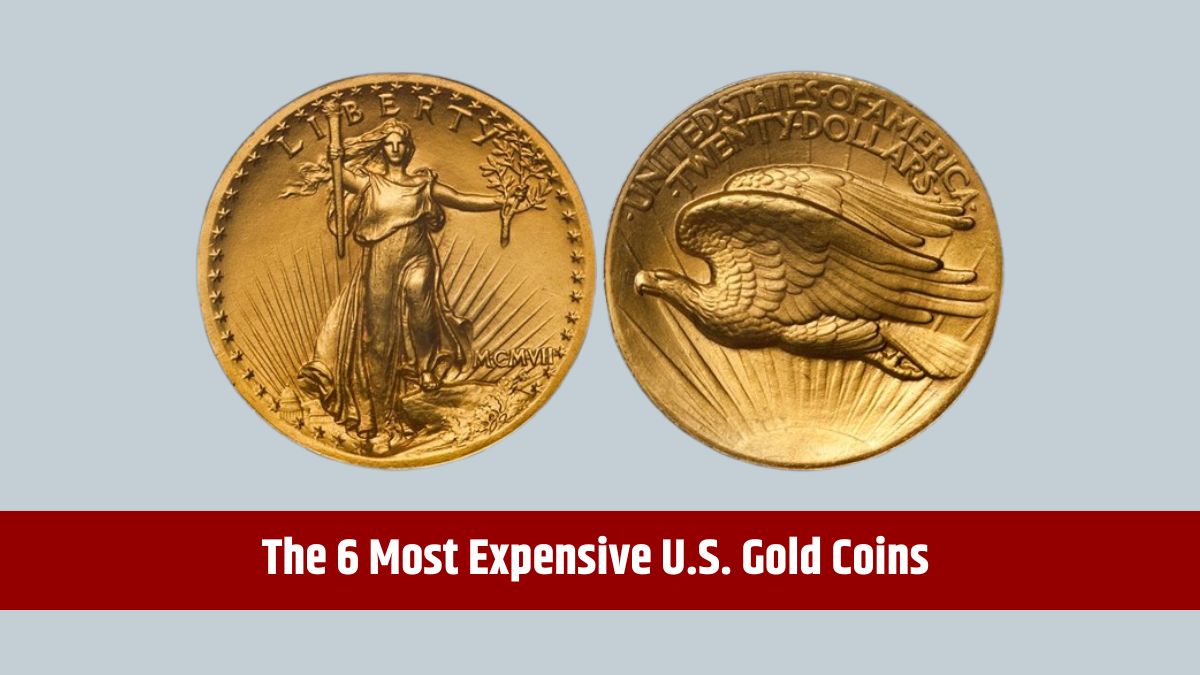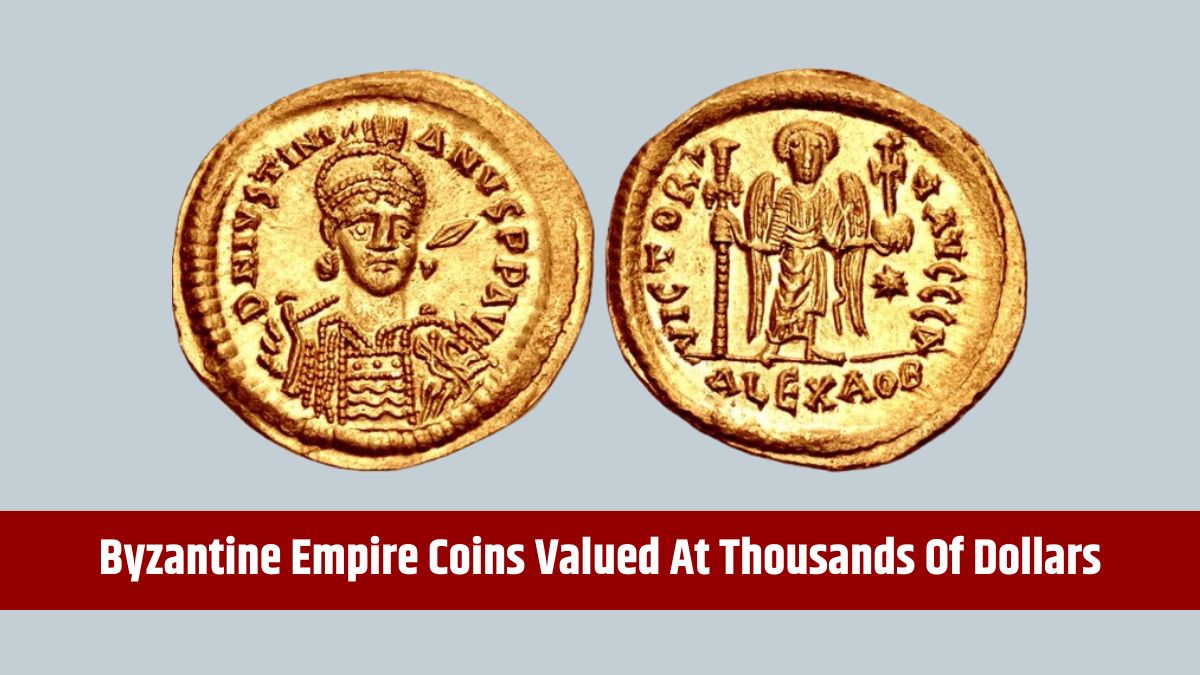Coin collecting, or numismatics, is a world brimming with valuable historical artifacts. Some coins carry a history and rarity that make them worth tens of millions of dollars, transforming small, metallic objects into sought-after treasures. Among them, the 1976 Bicentennial Quarter is one of the most fascinating U.S. coins, valued at close to a million dollars in rare cases. Let’s look into the remarkable story behind this quarter and observe six other coins, each worth over $30 million.
Bicentennial Quarter
Issued in 1976 to commemorate 200 years of American independence, the Bicentennial Quarter holds significant historical value. Although most of these quarters retain a modest value, certain rare versions, struck in 40% silver with a special mint mark, are valued near $1 million. The coin’s unique design includes a drummer boy and a torch encircled by 13 stars, symbolizing the original colonies. The quarter’s rare variant has limited production, excellent condition, and historical resonance, making it a coveted piece in numismatic circles.
Flowing Hair
Minted in 1794 and 1795, the Flowing Hair Silver/Copper Dollar is a milestone in American history as the first dollar coin issued by the U.S. federal government. Today, its value surpasses $30 million due to its age, rarity, and historical importance. The coin features Lady Liberty on one side and an eagle on the reverse, embodying the ideals of the new nation. With few specimens surviving in good condition, the Flowing Hair Dollar remains one of the most valuable coins globally.
1933 Double Eagle
The 1933 Double Eagle gold coin, originally worth $20, is now valued at over $30 million. Its beauty and history contribute to its allure, featuring Lady Liberty on one side and an eagle in flight on the other. During the Great Depression, nearly all these coins were ordered to be melted, with only a handful surviving due to legal battles and subsequent recoveries. This history of government intervention and the coin’s remarkable design make it one of the most legendary coins in numismatics.
Brasher Doubloon
In 1787, goldsmith Ephraim Brasher minted the Brasher Doubloon, valued today at more than $30 million. As the first gold coin made in America, it pre-dates the U.S. Mint’s founding and represents the early efforts to create a standardized American currency. Brasher’s petition to mint his own coins was revolutionary, and today the Brasher Doubloon stands as an artifact of America’s financial history.
Saint-Gaudens Double
Regarded as a numismatic masterpiece, the Saint-Gaudens Double Eagle was minted in 1907 and is valued at over $30 million. Created by the esteemed sculptor Augustus Saint-Gaudens at the request of President Theodore Roosevelt, this high-relief coin is celebrated for its detailed design of Liberty striding forward and an eagle in flight. Its intricate beauty and the legacy of its creator make it one of the most beautiful and sought-after coins in American history.
Liberty Head Nickel
The Liberty Head Nickel minted in 1913 is worth over $30 million and is famous for its accidental creation. Only five of these nickels were ever made, despite no authorization to mint nickels that year. Its design features Liberty’s head on one side, with a large Roman numeral “V” on the other. This combination of rarity and unusual circumstances surrounding its production elevates the Liberty Head Nickel to a place of legendary status in coin collecting.
Edward III Florin
Dating back to 1343, the Edward III Florin is a rare English gold coin valued at over $30 million. As one of the earliest gold coins minted in medieval England, it carries exceptional historical and cultural importance. The coin features King Edward III’s royal seal and represents a stunning example of early European coinage. With only a few specimens still in existence, the Edward III Florin is a coveted item among collectors and historians alike.
The following table highlights each coin’s estimated value and its unique historical significance:
| Coin | Estimated Value | Unique Feature |
|---|---|---|
| Bicentennial Quarter (1976) | $1 million | 40% silver variant, commemorative U.S. Independence |
| Flowing Hair Dollar (1794/5) | $30+ million | First U.S. dollar coin, Lady Liberty design |
| 1933 Double Eagle | $30+ million | Surviving coins from Great Depression recall order |
| Brasher Doubloon (1787) | $30+ million | America’s first gold coin, made by Ephraim Brasher |
| Saint-Gaudens Double Eagle | $30+ million | High-relief design by Saint-Gaudens, Liberty and eagle |
| Liberty Head Nickel (1913) | $30+ million | Unauthorized production, only five specimens known |
| Edward III Florin (1343) | $30+ million | Rare medieval coin from England, King Edward III seal |
These coins illustrate the vast historical, cultural, and artistic value that can be encapsulated in a small metal artifact. Each one tells a unique story of its time and place, from the American Revolution to medieval England. Whether you’re an avid coin collector or just curious, these high-value coins offer a fascinating look into the world of numismatics, where small objects can carry immense worth.
FAQs
What is special about the Bicentennial Quarter?
It commemorates U.S. independence and a rare silver variant is worth nearly $1 million.
Why is the 1933 Double Eagle so valuable?
Most were melted during the Great Depression, making surviving coins rare.
How many 1913 Liberty Head Nickels exist?
Only five known specimens were minted in 1913.
What makes the Brasher Doubloon unique?
It was America’s first gold coin, minted independently by Ephraim Brasher.
Why is the Flowing Hair Dollar so prized?
It’s the first U.S. dollar coin and holds historic significance as a symbol of early America.






